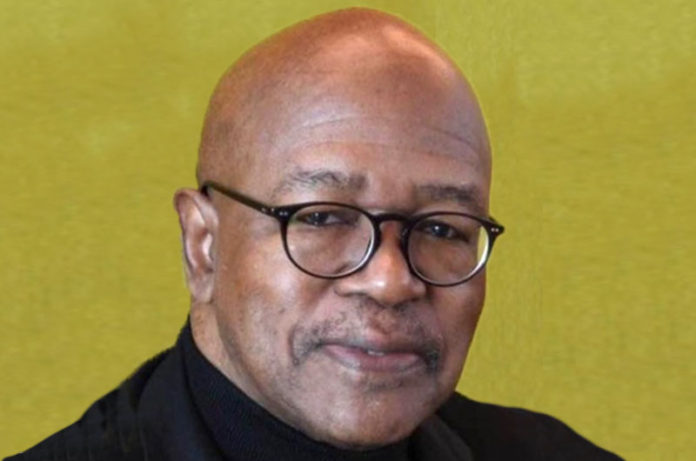Having taught and conducted research in the Philadelphia area for over 30 years, Elijah Anderson, PhD, is no stranger to Drexel University. In fact, he considers our University part of his vocabulary.
He also considers Drexel and its “Forever Dragons” many other things: prestigious, and poised to be the next great leaders, peacemakers and givers of kindness needed after the difficult and tumultuous year that is the backdrop of their transition out of the University and onto what’s next.
Anderson, who is the Sterling Professor of Sociology and of African American Studies at Yale University, shared these thoughts and more in a Q&A with DrexelNow in advance of his keynote address at Drexel’s University-wide Commencement on June 11 at Citizens Bank Park. Read on to find out more about his work, his own college background, and his optimistic views and hopes for the future of our world and the young graduates who will soon enter it.
Q: What comes to mind when you think of Drexel University and why?
A: Well, I think of Drexel as a prestigious university dedicated to science and technology located in the great city of Philadelphia.
Q: You spent decades teaching in and researching the Philadelphia area. What is your favorite Philly experience or memory from that time?
A: This is hard, since I have had so many positive experiences in Philadelphia, and I still conduct field work there. For me, Philadelphia continues to be a kind of laboratory for urban research. My first study of Philadelphia was “Streetwise,” a study of Powelton Village, the neighborhood in which Drexel is located.
I arrived in Philadelphia back in the mid-1970s. I taught at Swarthmore College for two years before joining the Penn faculty, where I taught for 32 years. In many ways, Philadelphia is America’s city. Today, of course, it includes all kinds of diversity, and people generally get along. I think that’s an amazing American story in itself.
Q: Do you have a favorite place in University City to grab lunch or a bite?
A: In the old neighborhood, for me, that was the White Dog Cafe. I knew the former owner, Judy Wicks. We’ve been friends for a long time. She developed that place from a small coffee and tea shop. I think she sold it a few years ago, but it was just a wonderful place for Penn and Drexel people to grab a bite with friends.
Q: How would you sum up your college experience, and what do you remember feeling at your own graduation ceremonies?
A: I attended Indiana University in Bloomington during the height of the Civil Rights and anti-war movements, and they affected me and so many others of my generation. I was deeply inspired to learn more about society, and especially inequality.
My dream was to become a professor, and I was thrilled to be accepted for graduate study at the University of Chicago on a prestigious fellowship. Graduate school was a new beginning, a new scholarly adventure, especially in the world-famous “Chicago School” of urban research.
I must say, during my student days, we thought we’d resolve the pressing issues of the day — inequality, race, economy, and politics — but over the years, our society has become even more polarized. Still, we retain a strong hope that we will survive and prevail over the current crises, and move forward.
Q: Can you give us a short distillation of your Commencement speech as a sneak peek for our graduates?
A: Well, there’s a special quote I like, and I will encourage the graduates to practice “Random Kindness and Senseless Acts of Beauty.” It’s the title of a book by Anne Herbert and Margaret Paloma Pavel.
My speech will focus on some of the challenges we face as a society, which may seem intractable. Finding resolutions will require the understanding of our fellow citizens, through which we can all try to make the world a better place. I think there’s a deep aspiration and tremendous motivation and drive within so many of the young people today to work to improve the society in which we live. I know I see this among my own Yale students. Despite the pressing issues we face, there is a certain optimism in the air.
However, the problem of race continues to be a serious challenge to the nation’s civil society.
For instance, when I see the repeated arbitrary killings of Black people — Eric Garland, Tamir Rice, Breonna Taylor, George Floyd, and Ronald Greene, a Black man who was killed in Louisiana in 2018 — I am reminded of how precarious Black life is in our society. This situation deeply concerns me and so many other Black people.
When white police officers can randomly kill Black people with little or no accountability, it is hard to be positive — you or your loved ones could be next. As long as Black people are constantly killed in this way, everybody knows Black people are not free, that something is terribly wrong with the system in which we live.
Q: Can you still be hopeful about civility in an age where divisions seem to be growing?
A: I wrote about this in my book, “The Cosmopolitan Canopy.” The “cosmopolitan canopy” is a concept that I developed — an island of racial civility in a sea of segregation. These canopies are all around, and they’re places where all kinds of people come together and essentially get along. At the same time, the canopy has fault lines — Philadelphia is the sixth most segregated city in the country, but within this segregation we still have these islands of racial civility. On a good day, Center City itself is an island of civility, if you will.
The canopy is a metaphor for civil society, the society that our parents, ministers, coaches, teachers, and rabbis taught us about and encouraged us to fit into — to listen to the better angels of our nature and to be civil to other people, and to judge them not by the color of their skin or their ethnicity, but by the content of their character.
Of course, under the canopy, there are people from parochial or ethnocentric backgrounds. When they come to the canopy, they learn to keep such orientations in check, at least until they can’t anymore. That’s when they may show disrespect for other people, whether they’re black, gay, female, Muslim, or whatever.
Any group can experience this disrespect, and it may rent the canopy for the time being. But typically, the canopy is resilient. It prevails, and can reinforce itself and even grow stronger.
Typically, when the canopy reacts to overcome the fault lines, people come together in a positive way, and remind one another of what society can aspire to be. To some extent, we’ve seen examples of this play out in the George Floyd incident and with the Black bird-watcher in Central Park. It happened at the Starbucks in Philadelphia, too, when the police were called on the two young men for being Black in Starbucks a few years ago. The other customers — white people, black people and others — quickly gathered around and supported these young men. When the incident made the news, even Starbucks had to react, and to engage in a period of soul-searching. That was the canopy in action, being resilient. That’s what I have observed in in my Philadelphia field work.
Q: What would you say about the concept of civility and how can that be applied or adapted to the age of remote work, of living life through the lens of social media, etc.? Do you think that the interplay is different in those spaces?
A: Working remotely poses certain challenges, because you’re not face-to-face with people who are different from yourself. But you know that they’re there, so the same requirements for respect and civility are still present in the workplace as it’s becoming.
Of course, some people don’t behave themselves because they have the cover of the Internet. People can hide behind false identities and express themselves openly in a way they can’t face-to-face. That’s one of the implications, but I think, with understanding, we can deal with it.
Q: What’s the best career advice anyone ever gave you?
A: Well, it’s hard to put it in a few words, but basically I would encourage young people to follow their dreams — but to keep them in perspective, and then to persevere, work hard, study hard, play hard, and have fun [laughs].
Q: Speaking of play hard, what do you do to relax?
A: Well, I play my flute, jazz flute. And I play with my grandkids and learn from them.
Q: For new graduates just starting their careers, what would you say is the biggest key to success?
A: That’s a tricky one. Everybody’s got an idea what they want to do in life and how to get there. But I think that one of the benefits of a liberal arts education is that it teaches the student to think critically and to ask questions. The assumption is that the questions are more important than the answers, if you will, to encourage an inquiring turn of mind.
People change all the time with more knowledge, more opportunities. So, this issue of critical thinking and being able to question and be able to come up with the solutions to problems and issues is very important. It sets the stage for success, I think.


.ashx?h=530&la=en&w=800&hash=784AFC64B38328880F1FA03C6805F70329AE4800)





